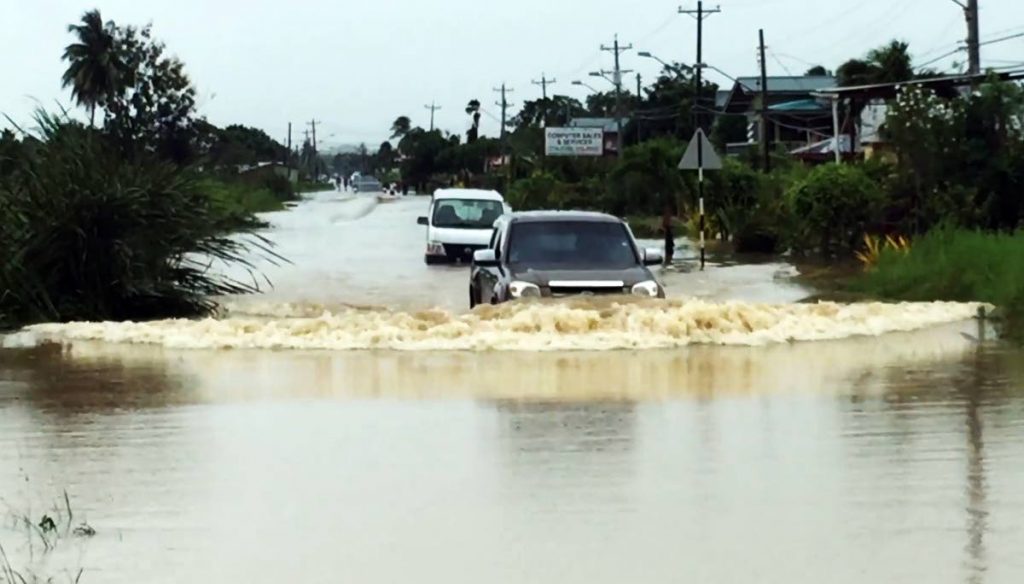Climate change already affecting TT

The effects of climate change are already evident in this country, as scientific evidence suggests there has already been an increase in mean surface temperature of about 1.7 degrees Celsius, based on meteorological data between 1961 and 2008.
This is according to deputy permanent secretary in the Ministry of Planning and Development Melanie Noel, who spoke yesterday at the national consultative meeting on climate change at which a series of vulnerability assessments on various sectors were presented.
Climatologist George de Romilly said TT, has not had a hurricane in decades and is due for one. He said the issue of climate change was no longer a matter of only academic interest but of taking action to mitigate the adverse effects of climate change. The two-day meeting was held to discuss the vulnerability assessments done over the past year under a European Union funded programme theme Technical Assistance to the Environmental Programme in Trinidad and Tobago.
Vulnerability assessments were conducted for agriculture, water resources, human health, coastal resources, fisheries, human settlement and infrastructure, bio-diversity, finance and insurance, and Tobago. Also under discussion was a strategic framework and programme for climate change risk management that includes budgetary proposals.
Noel said, “The projected impact of climate change for the region and TT over the next few decades include a reduction in the frequency of precipitation events with a noticeable increase in the intensity.” Climate change action in TT, she said, is guided by the national climate change policy, and the vulnerability assessments project is part of the implementation of that policy.
“Government has already begun to formulate and implement projects and programmes aimed at reducing or avoiding carbon emissions as we begin our journey towards a low carbon development future.” This programme uses a “whole government” approach, by including all the sectors already listed which would be affected by climate-related events.
Noting the increases in sea surface temperatures, which also affect the frequency and intensity of weather events and which the region is prone to, Noel said, “We have seen how disastrous the effects of hurricanes can be. The 2017 hurricane season broke many records in terms of how many storms became major hurricanes: Harvey, Maria and Irma.”
She said, earlier this year the heavy rainfall and widespread flooding and landslides associated with Tropical Storm Bret and heavy rainfall during the rainy season brought to the forefront the impact of climate-related disasters. Locally, she said, “There have been economic losses in the form of infrastructural damage, loss of agricultural crops and livestock, and the increase in the price of goods which inevitably occurs with high demand and limited supplies.”
Saying climate change threatens to severely undermine efforts at achieving economic and sustainable development, she said, preparing to combat the effects of climate change will pose significant challenges to island states in terms of financial, human, technical and technological resources.

Comments
"Climate change already affecting TT"